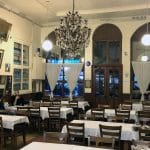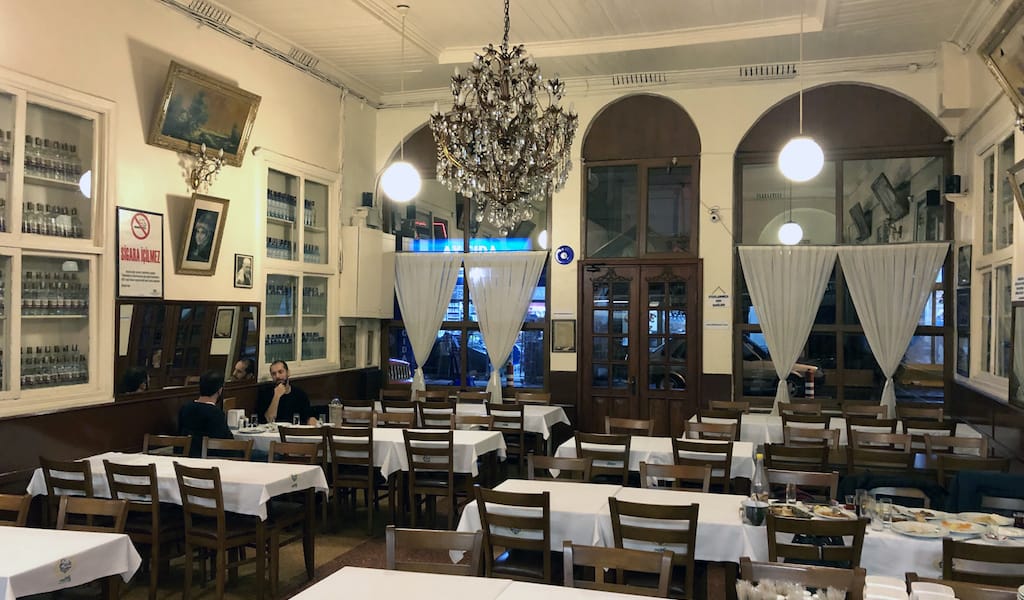Editor’s note: We regret to report that the Bolinhas app is no longer in operation. But buying a bolas de Berlim on the beach has certainly not gone out of fashion.
Every summer, sellers hawking bolas de Berlim – custard-filled doughnuts without a hole in the middle – throng to Portuguese beaches. Plodding across the boiling sand and ringing a bell to announce their arrival, they deliver these beautifully simple pastries to hungry beachgoers, many of whom associate a trip to the coast with the sweet treat.
A slew of bolas are sold on the beach each year; the presumed number is almost as eyebrow-raising as the calorie content of a big fat bola filled with custard. It’s no surprise, then, that an app promising to be the Uber of bolas has been an immediate success.
The idea for the Bolinhas app first came up in a conversation Ignácio Correia, the app’s founder, had with his youngest brother on a beach in the Algarve, where he and his siblings grew up. It took some years for Correia to act on the idea, but he ultimately developed the app through his company Algardata. Launched in early July of 2017, Bolinhas quickly gained traction, both with customers (the app recorded around 6,000 downloads in the first week) and sellers applying to work with the app. It lead Google Play for downloads in the food category in Portugal for months and is also available in the Apple store.

With the app, users can see where sellers are, order from a menu (the classic custard-filled doughnut, regular doughnut, carob doughnut, chocolate-filled doughnut, as well as other eats) and watch the seller approaching just like an Uber car. The app also allows users to order fruit at some beaches, like Portimão.
Bolas have a long history in Portugal. During World War II, a refugee family from Berlin began making the doughnuts in Lisbon. They were traditionally baked and filled with jam in Germany. But the Portuguese began frying the soft dough and packing it with a light lemon or eggy custard, calling the pastry bola de Berlim.
“Bolas taste better on the beach, because people are more relaxed here.”
The bolas quickly spread north and south of Lisbon, and itinerant cake sellers, who wandered the beach with a wooden box divided into separate compartments for each type of pastry, began carrying more and more of the fried doughnuts with yellow custard. Together with homemade chips and a wafer known as língua da sogra (mother-in-law’s tongue), bolas played an important role in the childhood of many Lisboetas – they were best after a swim in the salty sea. (This tradition is not exclusive to Portugal. Beachgoers in Greece are also avid fans of doughnuts, albeit without the custard. According to CB’s Athens correspondent Carolina Doriti, these doughnuts also “remind everyone of their childhood.”)
Even with the new app, selling bolas on the beach is still hard work. Vendors walk for hours on soft sand, some carrying their trays on their heads. Take Maria, who we met one morning on Costa da Caparica, a long stretch of beach south of Lisbon. She’s tired from walking back and forth all morning, but will have to walk a lot more before she heads home. “I will be here all day selling fresh bolas. Yes, it’s very tiring but it has to be done,” she explained. Her day starts earlier than others because she gets her bolas from a supplier in Lisbon: “I think the quality is better and they are softer than the ones sold by my colleagues – but don’t tell them that!”

Unlike Maria, who carries three plastic trays and shouts “olhá a bolinha” every 10 seconds or so, Ana prefers to carry one tray at a time and makes her presence known by ringing a bell. She hasn’t heard of the app, but doesn’t think it’s necessary. “It’s easy to find us, we’re here all day, walking back and forth,” she said. Heavily tanned, she doesn’t remember how many summers she’s sold bolas on the beach: “Too many for sure, as my wrinkles make clear. But what I know is that every day I’m here at 9 a.m. until the season ends.”
While not everyone is sold on the app, we imagine its popularity will grow as it expands to other areas. As of July 2017, the service was available in the Algarve (Manta Rota, Lagos, Portimão, Carcavelos, Oeiras, Quarteira, Fuzeta and Armona beaches) and also at Carcavelos and Oeiras beaches outside of Lisbon – and has surely expanded since. Correia never imagined that the app would be so successful. “Growing up on Quarteira beach, we knew how everyone loves eating bolas on the beach, how sad children can be when they don’t find one, but I never thought this app would generate so much interest,” he told us.
The one thing everyone can agree on is that there’s something special about eating a bola on the beach. For Correia, bolas on the beach are superior to those in bakeries and cafés. “These are lighter and softer,” he explained.
Ana, the bola vendor, suggests it’s the location that makes the difference. Bolas on the beach, she says, “taste better, because people are more relaxed here.”
 February 6, 2019 Safa Meyhanesi
February 6, 2019 Safa Meyhanesi
The main street of Istanbul’s Yedikule neighborhood is steeped in history: it is dotted […] Posted in Istanbul February 14, 2020 Azarphesha
February 14, 2020 Azarphesha
Up above Freedom Square where the Sololaki and Mtatsminda neighborhoods blend together, […] Posted in Tbilisi January 18, 2017 Çiğköftecisi Orhan Usta
January 18, 2017 Çiğköftecisi Orhan Usta
Update: This spot is sadly no longer open.
Visitors to Istanbul's iconic Spice Bazaar […] Posted in Istanbul, Street Food Masters
Published on August 02, 2019
Related stories
February 6, 2019
IstanbulThe main street of Istanbul’s Yedikule neighborhood is steeped in history: it is dotted with exquisite buildings built a century ago and passes through a gate that is part of the 4th-century Theodosian walls, parallel to which are a series of historic urban gardens that have been farmed for hundreds of years. Once a well-to-do…
February 14, 2020
TbilisiUp above Freedom Square where the Sololaki and Mtatsminda neighborhoods blend together, there is a 100-year-old building with an apartment five steps below the sidewalk. It’s a warm, intimate space, part living room, part museum. A massive collection of wine glasses hang from the ceiling, 19th-century framed portraits of Georgians decorate one wall above a…
January 18, 2017
IstanbulUpdate: This spot is sadly no longer open. Visitors to Istanbul's iconic Spice Bazaar encounter a place packed wall-to-wall with overzealous shopkeepers selling everything from saffron to sumac assembled in rows of majestic pyramids at slightly inflated prices. But for our money, the only spices worth a damn are found just outside in a humbler…


















































































